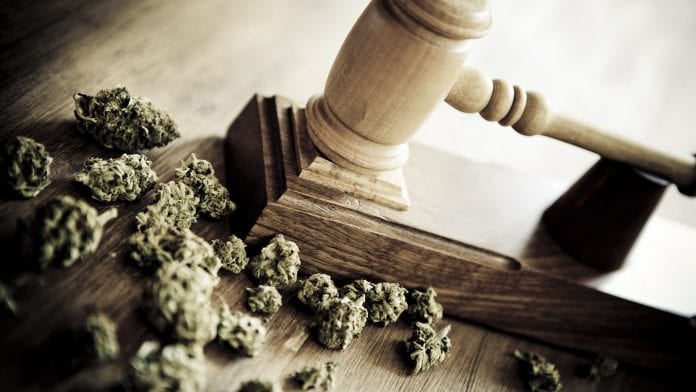
A new study funded by a grant from the National Institute of Justice sought to determine the effect of the change in legal status of cannabis on crimes rates.
Eleven states and the District of Columbia have legalised cannabis. The study, which looked at legalisation and sales of recreational or broad medical purposes cannabis in Colorado and Washington, found minimal to no effect on rates of violent and property crimes in those states.
The study, by researchers at Washington State University, Stockton University, and the University of Utah, appears in Justice Quarterly, a publication of the Academy of Criminal Justice Sciences.
The grand experiment
Ruibin Lu, assistant professor of criminal justice at Stockton University, who is first author on a paper about the study, said: “In many ways, the legalisation of cannabis constitutes a grand ongoing experiment into how a major public policy initiative does or does not accomplish its expected outcomes.
“Given the likelihood of more states legalising recreational cannabis, we felt it was important to apply robust empirical methods to parse out the effects of this action on crime in the first years after legalisation.”
Previous studies have reported mixed and inconclusive results on how legalising cannabis affects crime. Some politicians and advocacy groups have used these data to support their positions for and against legalisation.
In this new study, researchers used methods that they say are more rigorous than those used in previous research (i.e., quasi-experimental approaches that more closely emulate experiments and provide stronger evidence) to determine whether the legalisation of cannabis led to changes in crime rates.
Researchers chose Colorado and Washington because they were the two earliest states to legalise growing, processing, and selling cannabis commercially for recreational use.
Cannabis for medical and other purposes
Researchers compared monthly crime rates in Colorado and Washington to crime rates in 21 states that have not legalised cannabis use for recreational or broad medical purposes at the state level.
Crime rates came from the FBI’s Uniform Crime Report from 1999 to 2016 for agencies that reported complete data during this period. The study calculated how violent and property crimes changed for Colorado and Washington after the legalisation and retail sale and compared the changes to what happened in states that had not legalised cannabis.
In general, the study found no statistically significant long-term effects of recreational cannabis laws or the initiation of retail sales on violent or property crime rates in either Colorado or Washington, with the exception of a decline in burglary rates in Washington. This suggests that the legalisation and sales of cannabis for recreational or broad medical purposes have had minimal to no effect on major crimes in these states.
The study also chronicled some increases in crime in the two states immediately following legalisation of cannabis – with property crime rates rising in Colorado and Washington, and aggravated assault rates rising in Washington. But in both states, these increases were short-lived and did not reflect permanent shifts.
The study’s authors note that because they examined changes in serious crime, they cannot address the effect of legalising cannabis on other types of crime (e.g., crimes related to driving under the influence of cannabis). In addition, they say they cannot rule out the possibility that cannabis laws might have different effects on different types of communities within a state.
Dale W. Willits, assistant professor of criminal justice and criminology at Washington State University, one of the co-authors of the study, said: “As the nationwide debate about legalisation, the federal classification of cannabis under the Controlled Substances Act, and the consequences of legalisation for crime continues, it is essential to centre that discussion on studies that use contextualised and robust research designs with as few limitations as possible.
“This is but one study and legalisation of cannabis is still relatively new, but by replicating our findings, policymakers can answer the question of how legalisation affects crime.”







